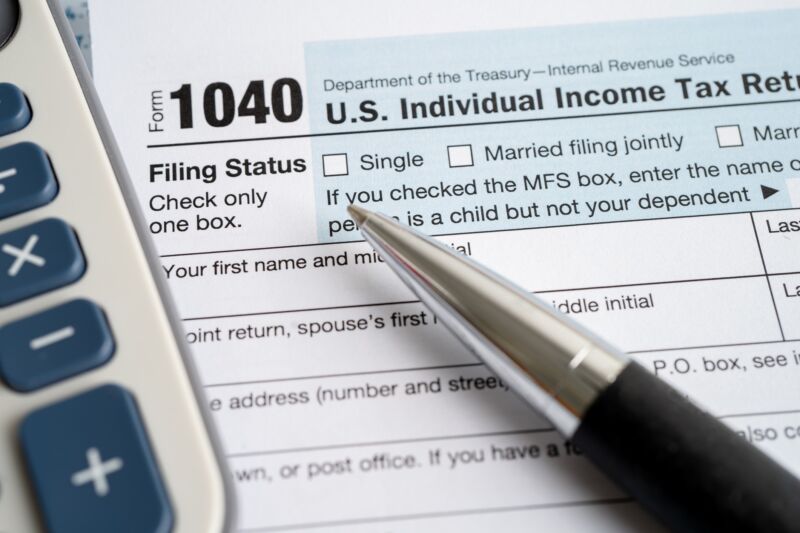Free should mean free —
Intuit plans appeal, slams FTC’s “predetermined decision.”
Jon Brodkin
–

Getty Images | Sasirin Pamai
The Federal Trade Commission’s chief administrative law judge ruled that Intuit violated US law with deceptive advertising and should be forced to stop promoting TurboTax as “free” unless all conditions imposed on the free offer are immediately and conspicuously displayed to consumers.
The initial decision by Administrative Law Judge D. Michael Chappell was released today and is subject to an automatic review by the full commission. The FTC commissioners will likely rule against Intuit, which issued a statement indicating that it will take the matter to federal court. The order would be in effect for 20 years if it survives appeal.
The response from Intuit noted that the administrative law judge is “an employee of the FTC” and “ruled in favor of the FTC in the agency’s own lawsuit.” The FTC filed an administrative complaint against Intuit in March 2022.
“Intuit will appeal this groundless and seemingly predetermined decision by the FTC to rule in its own favor and is confident that when the matter ultimately returns to a neutral body Intuit will prevail, as it has previously in this matter,” the company said.
Intuit also said it “already adheres to most of the advertising practices in the FTC’s erroneous decision. There is no monetary penalty, and Intuit expects no significant impact to its business.”
Clearly and conspicuously
According to Chappell’s 242-page ruling, “the evidence proves that Intuit engaged in deceptive advertising in violation of Section 5 of the FTC Act.” Intuit “advertised to consumers that they could file their taxes online for free using TurboTax, when in truth, for approximately two-thirds of taxpayers, the advertised claim was false,” he wrote.
The order said Intuit “must not represent that a good or service is ‘Free'” unless it actually offers the good or service for free to all consumers, or “All the terms, conditions, and obligations upon which receipt and retention of the ‘Free’ good or service are contingent are set forth clearly and conspicuously at the outset of the offer so as to leave no reasonable probability that the terms of the offer might be misunderstood.”
Moreover, if an Intuit good or service is not free for most US taxpayers, that fact must be “disclosed clearly and conspicuously at the outset of any disclosures required” by the order. The order defines “clearly and conspicuously” in some detail.
“In any communication that is solely visual or solely audible, the disclosure must be made through the same means through which the communication is presented,” it says. “In any communication made through both visual and audible means, such as a television advertisement, the disclosure must be presented simultaneously in both the visual and audible portions of the communication even if the representation requiring the disclosure is made in only one means.”
The order then provides more specifics on how disclosures must be conveyed in various formats. For example, visual disclosures “must stand out from any accompanying text or other visual elements so that it is easily noticed, read, and understood,” and audible disclosures “must be delivered in a volume, speed, and cadence sufficient for ordinary consumers to easily hear and understand it.”
Similarly strict requirements apply to online advertisements, product labels, and face-to-face communications. The disclosures also “must not be contradicted or mitigated by, or inconsistent with, anything else in the communication.”
Court denied FTC injunction request
At the same time it filed the administrative complaint last year, the FTC also sued Intuit in US District Court for the Northern District of California. In the federal court, a judge denied the FTC’s motion for a preliminary injunction in an April 2022 order that said the issue could remain on hold while the FTC’s administrative process unfolds.
The ruling said that “Intuit had removed several of the most plausibly deceptive advertisements—that is, three videos that repeated the word ‘free’ a dozen or more times over 30 seconds before a very brief disclaimer.”
“However, if Intuit resumes its full advertising campaign… or the facts on the ground change significantly, the FTC may return to this Court to request relief,” US District Judge Charles Breyer wrote.
In a separate case involving all 50 US states and the District of Columbia, Intuit, in May 2022, agreed to pay $141 million in restitution to nearly 4.4 million consumers who “started using TurboTax’s Free Edition for tax years 2016 through 2018 and were told that they had to pay to file even though they were eligible to file for free using the IRS Free File program offered through TurboTax,” New York Attorney General Letitia James’ office said at the time. Under that settlement, Intuit was required to stop its “free, free, free” ad campaign.
In its response to the administrative law judge’s decision, Intuit said it expected the ruling because of the FTC’s “flawed and highly questionable process, Chair Lina Khan’s previous public and prejudicial statements against Intuit, and the fact that the FTC has ruled in its own favor in nearly every consumer protection case for the last two decades.”
“We believe the FTC’s decision is improper, wholly ignores the facts, and tramples on the foundations of an independent American judicial system with its serving as prosecutor, judge, and jury on its own matters,” Intuit said.

